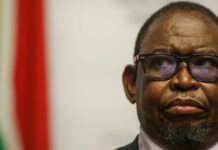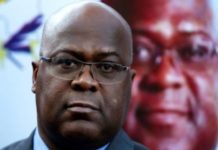
BARRICK Mining posted much improved net earnings for the second quarter – its best in over a decade – owing to reduced all in sustaining costs and a 15% increase in the gold price.
Net earnings came in at 47 US cents per share, beating consensus and easily beating first quarter earnings of 27c/share.
The gold price received averaged $3,280/oz compared to $2,860/oz in the first quarter. AISC were $1,684/oz (Q1:$1,775/oz) limiting cost of sales to a 5% increase quarter-on-quarter increase, coming in at $1,878/oz ($1,785/oz).
The outcome for shareholders was a $170m second quarter dividend declaration, including a five cents per share top-up, to be paid on September 15.
Added to $268m of a previously announced $1bn share buy-back programme, the total return for shareholders for the quarter will be $438m compared to a return of $315m in the first quarter. Of its buy-back, Barrick has this year purchased $411m worth of shares.
Commenting on prospects, Barrick said it was on track to meet full year production and cost guidance of in the range of 3.15 to 3.50 million oz and $1,050 to $1,130/oz respectively. AISC/oz would be $1,460 to $1,560/oz as guided. Barrick has assumed an average gold price of $2,400/oz.
Excluded from the numbers is Mali mine Loulo-Gounkoto which is now operated by an external third party amid a dispute with the West African country’s government.
“As a result of this loss of control event, the assets, liabilities and non-controlling interest of Loulo-Gounkoto were deconsolidated and derecognised and a retained investment was recognised at fair value,” said Barrick in notes to its second quarter numbers.
Barrick CEO Mark Bristow told Miningmx in its Mining Yearbook 2025 that the detention of four Malian employees amid the dispute was among the toughest of challenges in his career. “While we support them and we talk to them, it’s the most stressful thing I’ve ever managed – a situation like this,” he said.
Reuters cited Bristow as saying that recent proposals by the US for tariffs on gold exports would have “minimal” impact on miners as they are “price takers.”
It emerged last week that the US had classified one-kilogram gold bars under tariff-bearing customs codes, threatening to disrupt global bullion markets.










